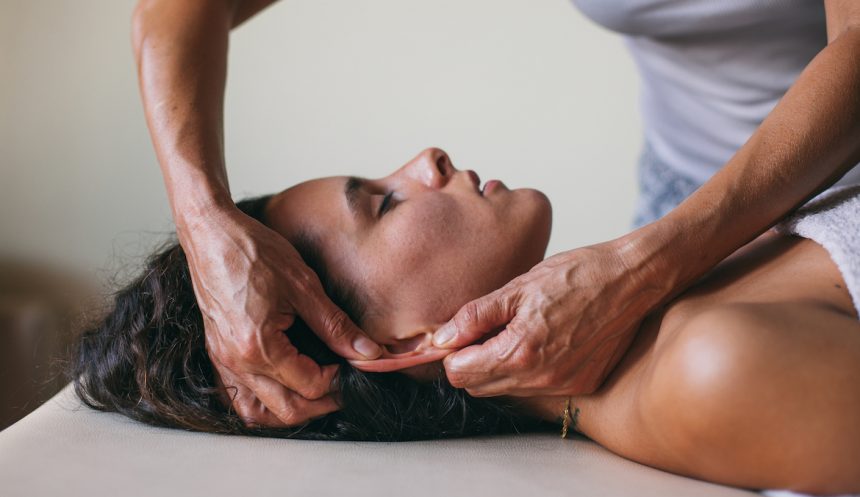If you have interstitial cystitis (IC), also known as bladder pain syndrome (BPS), you may dread each trip to the restroom during a flare-up. IC occurs when you experience chronic pain, pressure, or discomfort in your bladder area without any evidence of infection. In addition to pain, IC also leads to sudden urges to urinate and frequent bathroom visits, although symptoms and severity vary from person to person. While anyone can develop IC, certain groups, according to the Cleveland Clinic, are at higher risk:
– Individuals assigned female at birth (AFAB)
– People 30 years or older
– Those with another chronic pain condition
The cause of IC remains largely unknown, with no definitive cure available at the moment. However, there are numerous ways to manage the condition. Marisa M. Clifton, MD, FACS, director of women’s health in the Brady Urological Institute at Johns Hopkins Medicine, states, “Most treatments focus on symptom control.” Not every treatment is effective for every individual, and many with IC discover that a combination of approaches works best for them. In addition to medical treatments, incorporating lifestyle changes and self-care practices can significantly decrease discomfort and pain. Continue reading to learn what you can do at home for greater relief from IC.
### The Best Interstitial Cystitis Self-Care Tips
Stress and certain habits can trigger an IC flare. However, there are ways to manage symptoms effectively. The following practices may help in keeping flares at bay. It’s important to note that different patients may find relief through different techniques, so if one strategy doesn’t work, don’t lose hope – try another.
#### Avoid Triggering Foods
Although there isn’t definitive evidence linking diet to IC, some experts suggest that certain foods may inflame the bladder and exacerbate the condition. To manage IC, consider limiting or avoiding the following foods:
– Citrus fruits
– Tomatoes
– Chocolate
– Coffee
– Potassium-rich foods
– Alcoholic beverages
– Caffeinated beverages
– Spicy foods
– Spices
– High-acid foods
– Some carbonated beverages
#### Practice Stress-Management Techniques
Stress can worsen IC symptoms as it heightens pain sensitivity. Identifying stress triggers is crucial in managing symptoms effectively. Techniques like deep breathing, yoga, meditation, and talking to a therapist can help reduce stress levels and improve symptoms.
#### Get Proper Sleep
Quality sleep is essential for managing IC symptoms. Maintaining a consistent sleep schedule can prevent fatigue, ultimately alleviating perceived pain and bladder symptoms. Chronic sleep issues are linked to urinary symptoms exacerbation, making routine sleep practices vital in managing IC symptoms.
#### Incorporate Low-Impact Exercise
Staying active and maintaining a healthy lifestyle is crucial for managing IC symptoms. Low-impact exercises like walking or yoga can improve sleep quality, reduce fatigue, enhance mood, and decrease systemic stress. However, avoid high-impact exercises or extreme weightlifting, as they may worsen symptoms.
#### Wear Loose Clothing
In patients with muscle tension or pain, tight clothing can be uncomfortable and aggravate symptoms. Opt for loose clothing that doesn’t put pressure on your abdomen to reduce discomfort.
#### Take a Warm Sitz Bath
Sitz baths can help relax tense muscles contributing to symptoms and reduce anxiety and stress. If baths aren’t your thing, use a warm heating pad, but remember to rotate its location to prevent skin irritation.
#### Get a Massage
Massage, especially myofascial release, can help decrease overall stress and target specific areas of muscle tension. It’s a relaxing way to relieve IC symptoms effectively.
#### Try Acupuncture
Acupuncture has shown benefits in reducing pain and pelvic floor tenderness. This ancient healing treatment may rebalance your body’s energy flow or promote natural pain relief mechanisms to alleviate discomfort.
#### See a Pelvic Floor Therapist
Pelvic floor physical therapy can improve pelvic floor symptoms by teaching proper exercises, stretches, and relaxation techniques. Avoid strengthening exercises like Kegels, as they may exacerbate bladder symptoms.
#### Try Bladder Training
Bladder training can be beneficial for IC patients, helping them hold urine longer, reducing urgent bathroom needs. Seeking guidance from a pelvic floor physical therapist can optimize the outcomes of bladder training.
#### Connect Members of Your Care Team
Collaboration among different healthcare providers can enhance IC outcomes by addressing concomitant medical conditions. Engaging a variety of providers can provide comprehensive support in managing IC effectively.





